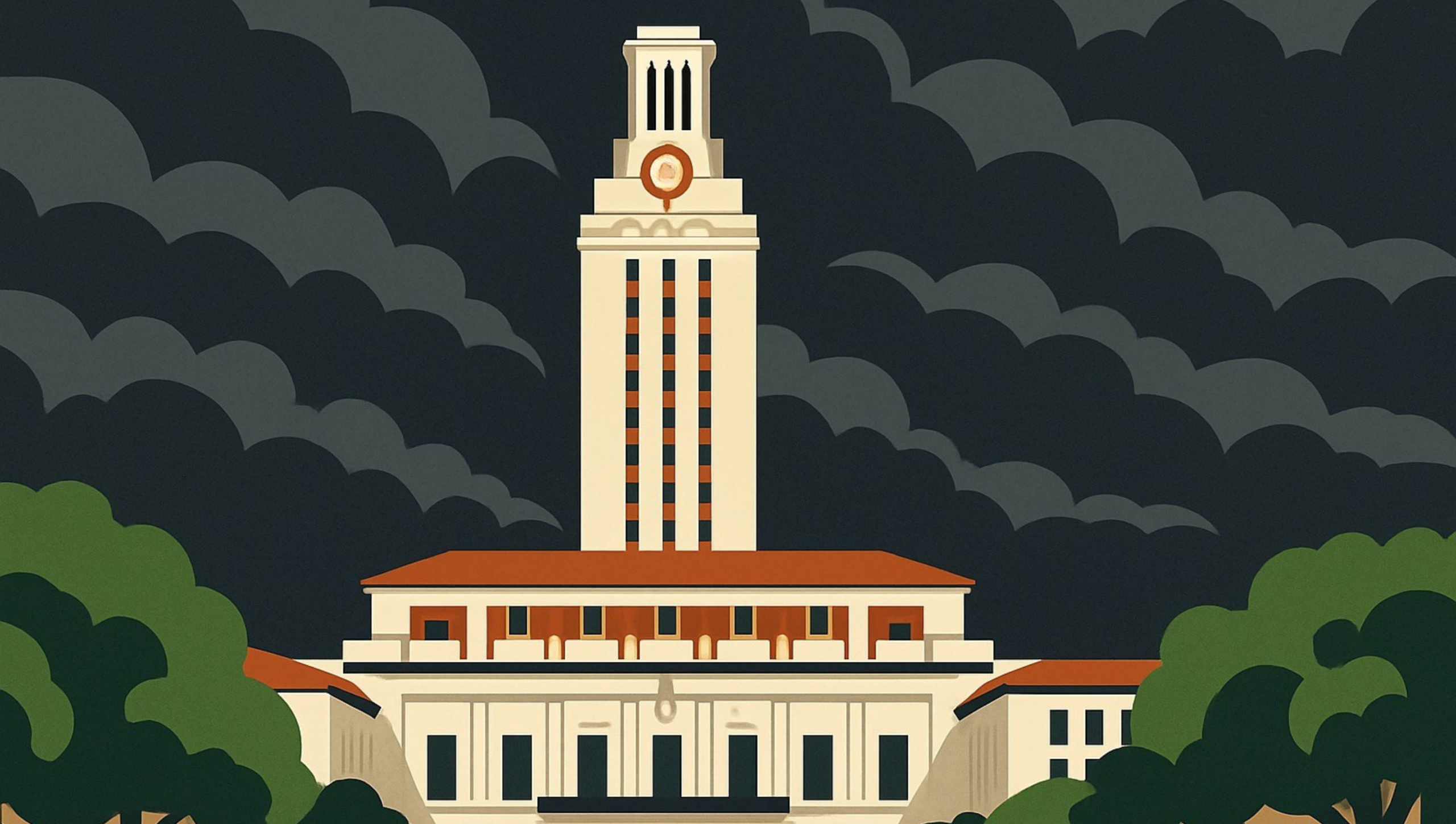On Thursday of last week, the Texas House of Representatives considered House Bill 1, or the General Appropriations Act (GAA) for the next biennium, fiscal years 2024 and 2025. The legislation represents the proposed state budget, the only item that lawmakers are constitutionally bound to consider before the conclusion of the legislative session.
Nearly 400 amendments were pre-filed ahead of the legislation’s consideration. As the deliberations unfolded, however, a large swath of them were withdrawn almost immediately, likely having been negotiated away behind the scenes by House elected leadership and the legislation’s author, Republican State Rep. Greg Bonnen (Friendswood).
In its entirety, the deliberations were relatively quick, lasting about eight hours total. In previous legislative sessions, those deliberations have lasted upwards of 12 hours.
Texans for Fiscal Responsibility (TFR) livestreamed the proceedings as a part of its Big Money, Big Decisions coverage. You can find the full video here.
Bill Summary
The budget proposal includes more than $302 billion in spending to various segments of state government, substantially exceeding that of the previous biennium ($260 billion+).
The legislation passed the Texas House of Representatives by a vote of 136-10. Of those who voted against the proposal, two were Republicans: State Rep. Brian Harrison (Midlothian) and Tony Tinderholt (Arlington). Both took to Twitter to explain their nay votes:
Flashpoints, or Lack Thereof
Those unfortunate enough to watch the entirety of the budget proposal debate bore witness to a process even more boring than that of previous legislative sessions. Over the course of the nearly eight-hour deliberation, the debate lacked record votes, actual public-facing debate, and serious discussion over additional property tax relief. Also notable was the preclusion of funding any would-be school choice efforts.
Lack of Record Votes & Notable Pushback
Perhaps one of the largest takeaways from the overall budget deliberation was the lack of just that: deliberation (at least publicly). Of the entire debate, only 10 record votes were taken even though only 85 amendments were actually considered. The vast majority of the amendments that were not withdrawn at the beginning of the debate were instead moved to Article XI of the budget, which is proverbially known as the “wish list” or “trash can” since those amendments are often stripped out of the proposal when the legislation goes to its conference committee.
Another notable takeaway from the deliberations was the lack of substantive questions from lawmakers on amendments that were proposed and voted on. There was seldom any public exchange between the front and back microphones between lawmakers, likely pointing to the reality that much of the discourse was taking place outside of public purview.
Voting on how to appropriate taxpayer money is ostensibly the most important series of votes lawmakers will take every session. Despite this, there is very little accountability this go-around, as there are very few record votes to point back to, even though lawmakers appropriated $302 billion.
Property Tax Relief
Several pre-filed amendments that sought to adjust the amount of property tax relief were incorporated into the property tax relief fund.
Republican State Rep. Briscoe Cain (Deer Park) pre-filed amendments that would have taken from varying areas of the proposed budget, like the Texas Lottery Commission or the Texas Commission on the Arts, and instead put specific amounts toward the effort of compressing the school M&O (Maintenance & Operations) portion of the property tax. Cain also had a few amendments allocating 90% of the projected budget surplus for the same effort. Sadly, those pre-filed amendments were withdrawn and never considered.
Democrat State Rep. Trey Martinez-Fischer (San Antonio), who also happens to be the chairman of the House Democrat Caucus, authored an amendment seeking to take away $8 billion from what was to be newly appropriated property tax relief and instead direct it to an increase in public educators’ salaries. The amendment failed largely along partisan lines by a vote of 66 in favor to 79 in opposition. Other similar amendments also failed.
School Choice
Perhaps the most anticipated amendment was one authored by Democrat State Rep. Abel Herrero (Robstown), which sought to preclude any money to be appropriated to efforts for school choice. Specifically, the amendment said, “Money appropriated by this Act may not be used to pay for or support a school voucher, including an education savings account, tax credit scholarship program, or a grant or other similar program through which a child may use state money for non-public primary or secondary education.”
This amendment was subjected to an immense amount of media coverage given that Texas Governor Greg Abbott made “education freedom” an emergency legislative item in his State of the State address in mid-February.
After much-orchestrated theatre from both Republican and Democrat state lawmakers, the amendment was subjected to a motion to table, which—if successful—would have ended its consideration. That motion failed by a vote of 64 in favor and 71 in opposition. Shortly thereafter, the amendment was voted on and was successfully adopted by a vote of 86 in favor and 52 in opposition.
Notably, the following Republican House lawmakers voted in favor of precluding any money be appropriated for the purpose of school choice: State Reps. Steve Allison (San Antonio), Trent Ashby (Lufkin), Ernest Bailes (Shepherd), Keith Bell (Forney), DeWayne Burns (Cleburne), Travis Clardy (Nacogdoches), Drew Darby (San Angelo), Jay Dean (Longview), Charlie Geren (Fort Worth), Justin Holland (Heath), Kyle Kacal (College Station), Ken King (Canadian), John Kuempel (Seguin), Stan Lambert (Abilene), Brooks Landgraf (Odessa), Andrew Murr (Junction), Angelia Orr (Itasca), Four Price (Arlington), John Raney (Bryan), Glenn Rogers (Graford), Hugh Shine (Temple), Reggie Smith (Van Alstyne), David Spiller (Jacksboro), and Gary VanDeaver (New Boston).
It is also worth noting that the following lawmakers voted present, not voting: State Reps. Brad Buckley (R-Salado), David Cook (R-Mansfield), Mano DeAyala (R-Houston), Harold Dutton (D-Houston), Frederick Frazier (R-McKinney), Caroline Harris (R-Round Rock), John Lujan (R-San Antonio), Shelby Slawson (R-Stephenville), Kronda Thimesch (R-Lewisville), and Ed Thompson (R-Pearland).
The successful amendment does not necessarily end the legislative prospects of school choice efforts in this legislative session. It is likely that the amendment itself will be stripped off in the Texas Senate or at least in the almost inevitable conference committee process.
What the successful adoption of the amendment does confirm, however, is that the uphill battle for school choice advocates resides in the Texas House of Representatives, especially considering that while the House was considering the anti-school choice amendment, the Texas Senate was simultaneously considering legislation that would establish education savings accounts (ESAs). That legislation later passed the Senate by a vote of 18 in favor and 13 in opposition, with State Sen. Robert Nichols (Jacksonville) as the only Republican voting against the measure.
What Is Next?
The proposal now moves to the Texas Senate, where it will be reconciled with the Senate’s version of the legislation. Once passed in the upper chamber, it will almost inevitably be subjected to a request for a conference committee. Historically, the conference committee has been comprised of the subcommittee chairman of both the House Appropriations and Senate Finance Committees, totaling 10 lawmakers. They then craft a conference committee report, which is considered by both legislative chambers; when passed, it makes its way to the state comptroller for certification before heading to the governor for his consideration.
Concerned taxpayers may contact their state lawmaker here.
Texans for Fiscal Responsibility relies on the support of private donors across the Lone Star State in order to promote fiscal responsibility and pro-taxpayer government in Texas. Please consider supporting our efforts! Thank you!
Get The Fiscal Note, our free weekly roll-up on all the current events that could impact your wallet. Subscribe today!




